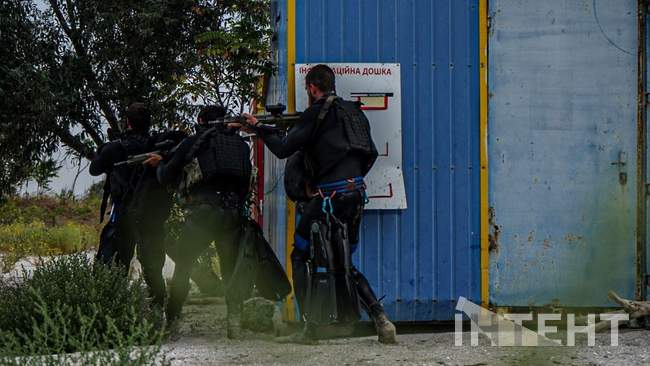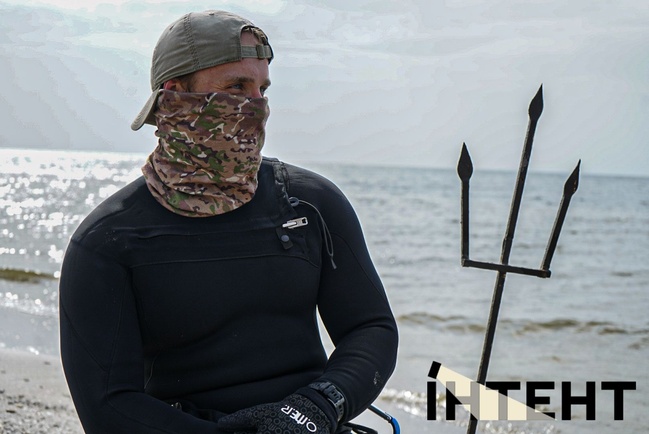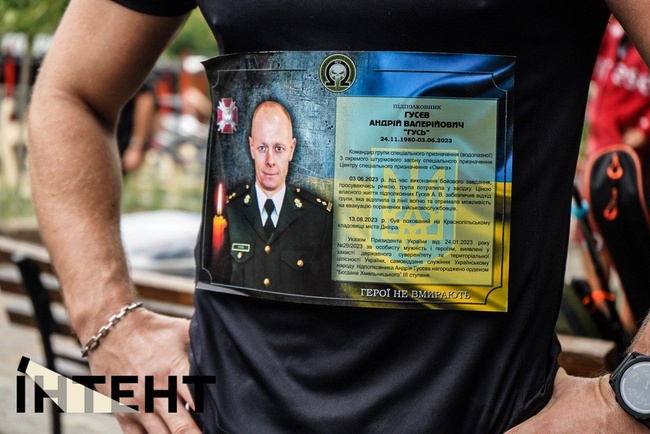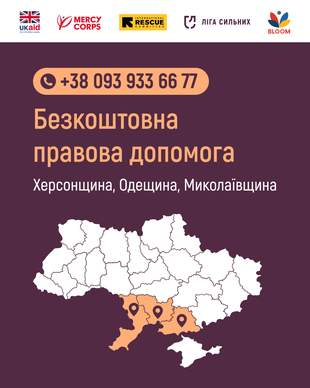Меню
Соціальні мережі
Розділи
Nov. 11, 2024, 10:41 p.m.
Underwater front: divers of the Omega unit about demining, battles and dangers
This article also available in English232

Photo: Intent/Albina Karman
The divers of the 3rd Omega Special Forces detachment have been performing sabotage operations in enemy territory long before the Kursk operation, when it was hard to even imagine. At the end of August, Intent's journalists visited one of the southern regions of the country and talked to commander Vitaliy and diver Artem.
Vitaliy: Today, our immediate task is to clear the sea area of mines. Over a month of our work in this area, we have discovered and cleared over 170 mines. During the war, the group performed not only demining tasks, but also sabotage tasks, land tasks and any other tasks that our leadership can think of.
How does the demining work?
Artem: If it's in a calm environment like now, where there are no direct hostilities, then everything is standard. A given area is divided into sectors, into squares, and a person is assigned to go through it with a metal detector, detect some signals, notice it, and then a group that works directly on removing the mine from the soil does it, namely, digs it out with any means (pumps, shovels, hands), removes it, takes it to the storage point for the removed ammunition, and then sends it for destruction.

Artem. Photo: Intent/Albina Karman
How does the enemy mine the water area?
Artem: It depends on the water area and conditions. They mine by dropping anti-landing mines, river mines and anchor mines. They can be dropped from a boat, a ship, a boat, anything. They are directly aimed at causing maximum damage to the landing force. That is why groups like ours are involved in some parts of the frontline. It's simple arithmetic - there is a group of 2-4 divers and a landing team of 3 boats, so it is better to perform this task with 4 people, calmly and quietly identify such areas and go around them or mine them if there is time for that.
What was the first task after the start of the full-scale war?
Vitaliy: At the beginning of the full-scale war, the first task of the diving group was land-based. It took place in Donbas, in a very "hot" village at the time, and the diving group proved to be the most versatile. Diving tasks appeared in 2023.
What tasks can divers perform?
Artem: We can do anything that is near the water component. We can approach, observe the enemy, identify enemy observation points and positions, perform reconnaissance, reconnoiter, mine clearance, if possible, check the landing zone, meet the landing party, conduct the landing - all these tasks can be performed.

Photo: Intent/Albina Karman
What was the most difficult task?
Artem: I got my first and only injury on the enemy's territory, where we were performing logistics support tasks directly to the groups working on the contact line with the enemy.
We were tasked with taking control of a settlement by reconnaissance units, and we were assigned to go to one point - a bridge that connected two villages - and take control of this bridge. Before we were able to approach the bridge and take control of it, our group performed logistics tasks, namely, we brought ammunition, took out the wounded and prisoners and delivered them to certain points.
There, the group's fighters were wounded. We were entrusted with the tasks of assistance and logistics, and it so happened that a subversive enemy group was nearby. Fire contact began, like an ambush, and so almost the entire group was out of action.
We lost two comrades there, the Hero of Ukraine Andriy Husyev, and one of our comrades is still missing.

The soldiers' race is dedicated to their fallen comrades. Photo: Intent/Albina Karman
"The distance with the enemy was up to 7 meters, maybe 10. It was a very narrow river, we could not see them, there were only shots, they opened suppressive fire immediately in the direction of the enemy and it so happened that we were an easy target for the enemy. It so happened that even in a disadvantageous position, we outperformed the enemy.
Vitaliy: The most important danger is the health of the diver and what the diver is working on. If it is sabotage equipment, it works on pure oxygen. Pure oxygen works up to 9 meters in depth, after which it simply turns off and the person loses consciousness. Oxygen poisoning can occur even earlier. If a person is not prepared to breathe oxygen, it is very difficult. It doesn't even compare to regular scuba diving, if you've tried to go down as a tourist. Therefore, the most basic safety is water, depth, and what you breathe.
And, accordingly, enemy shelling. If the enemy knows the diver's route, any explosion due to the density of the water is transmitted much more strongly at depth, and a water hammer occurs. Everyone has stunned fish and seen them float away, so the same thing happens to a diver in the water, the blast wave will simply close all possible voids in the body and the person will swim to the surface.
What injuries did you receive during the full-scale war?
Vitaliy: During the full-scale war, I already had two injuries. The first was a severe contusion with damage to the optic nerves and other consequences. Some people write off such injuries and say that it is impossible to serve. Everything is possible. The second one was already on the water, there were three holes in me, the fourth in my armor, and another in my helmet. The distance was short, we all had bullet wounds, because we work at short distances with the enemy or in their rear. Artillery only frightens us at the moment of going to the task, then artillery does not concern us at all.
And my last injury was on the territory of the Russian Federation before it became mainstream. Yes, we are the first guardsmen who were not captured in Russia.









